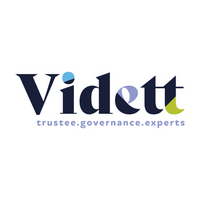What to ask when choosing a master trust pension scheme
All master trusts might look similar, but each has its own nuances and there’s a difference between a consultancy-led proposition and an insurer-led one.
It’s easy to think the key question revolves around investment options, fund mapping, etc. These are important, of course, especially if existing pension scheme trustees have to sign off on a bulk transfer. However, there are other key considerations, such as the ongoing governance structure and how good communication to members is.
Support for members is key
This is really important. It isn’t only about how good at communicating they are, but what medium/methods they will offer these communications in. Many employers have ‘shop floor’ workers who do not have access to company email, etc. The master trust provider’s plan needs to incorporate communications that works for all employees (so includes both digital and hard copy).
Ask what support and communications will be provided to employees/members during any consultation period and the implementation phase. This is a period when all parties are keen to engage members, but what happens afterwards, be that before, at, or after retirement?
The employers we work with are often keen to ensure the provider can offer other non-pensions financial resources such as access to an ISA, budgeting tools and modellers and other financial wellbeing resources.
Ask about ongoing governance oversight
If a pension master trust does not have an effective governance structure and the ability to explain to members in a friendly way their path from joining to retirement and beyond, it doesn’t matter how good the investment options are. Members may not engage and retirement outcomes may be reduced.
Employers will, therefore, want to understand the governance structure under the master trust, who the trustees are and why they were selected.
Most employers are keen to have ongoing governance oversight. Many set up an internal governance committee to oversee and review the reports provided quarterly/annually by the master trust trustees.
One of the most frequent employer demands is to have someone from the master trust directly report into this internal committee (whether this is a client relationship manager or one of the trustees) to present an overview of what has been happening in the scheme.
Employers want to ensure the master trust continues to meet the needs of their employees and that their employees are engaged with their retirement provision and appreciate the options. This means ensuring you’ll receive relevant engagement statistics and communication plans is vital.
Probe support on implementation and transition
Another key focus in selecting a pension master trust is the implementation and transition of assets – particularly if assets are coming in via a bulk transfer from a trust-based pension scheme.
The focus here needs to be on the strength of the project management, the number of projects already undertaken and any feedback given. You’ll want to understand how the master trust provider engages with stakeholders (transferring arrangement, trustees, legal advisers and employer) to ensure the transition is as seamless as possible.
Costs questions
Most employers will want to ensure their employees will not lose out financially. This means asking about the master trust providers how they manage out of market risk, whether they have pre-funding offerings and what the standard terms for the default investment option are (as it is still the case most members are in the default).
These can vary, but most (albeit not all) pension master trust terms have been more competitive over the last couple of years and sit favourably among standard insurer default fund costs.
Lastly – the presentation. This can be key. Some consultancy-led propositions do not use their own administration services to administer the master trust, which is always a topical question at the interview stage. You’ll also want to probe service levels, net promoter scores, etc. What’s most important is you’re clear on who you want to present – no sales teams, just the people who will actually do the work and look after your members!
Supplied by REBA Associate Member, Vidett
Leading the way in professional trusteeship & governance








